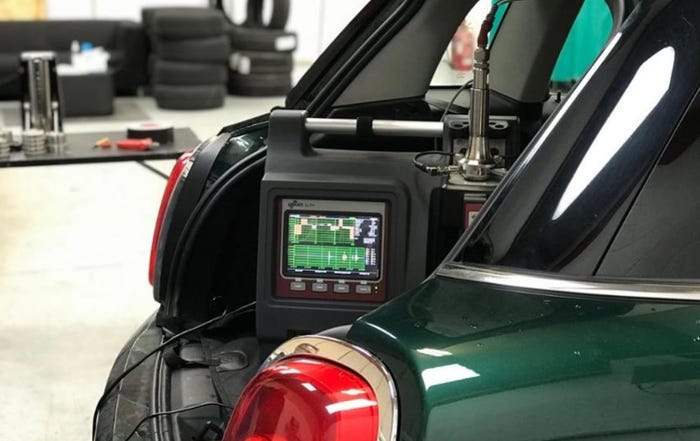Jeep Engine Pushes DC's One-stop Extended Enterprise
Managers at the former Chrysler Corp. decided they needed to stretch their concept of "extended enterprise" with suppliers when they began planning four years ago to build a new engine for the Jeep Grand Cherokee."At Chrysler, we want to leverage our supply base," says Bob Lee, manager of engine engineering for light trucks at the new DaimlerChrysler Corp. "For this engine, we needed to have our supplier

Managers at the former Chrysler Corp. decided they needed to stretch their concept of "extended enterprise" with suppliers when they began planning four years ago to build a new engine for the Jeep Grand Cherokee.
"At Chrysler, we want to leverage our supply base," says Bob Lee, manager of engine engineering for light trucks at the new DaimlerChrysler Corp. "For this engine, we needed to have our supplier sources identified early on so we could be committed to each other early."
Nearly 31/2 years before production launch of the 4.7L V-8 at the Mack Ave. engine plant in Detroit, Chrysler had completed 95% of the component sourcing. In addition to recruiting early, the team demanded two other things from suppliers: full systems responsibility and an on-site presence in the plant.
Several suppliers met the task: Eaton Corp. handled the valvetrain, BorgWarner Automotive did the timing drive, and Federal-Mogul Corp. subsidiary Weyburn-Bartel Inc. produced the camshaft with powder metal lobes based on technology from Nippon Piston Ring.
Ring Screw Works, acquired last May by Textron Inc., coordinated sourcing for every fastener on the engine. Ring Screw Works supplies 85% of the fasteners and sources the rest. In the past, a couple dozen companies supplied fasteners for a single engine, Mr. Lee says.
Chrysler also wanted one supplier to handle all the sealing of the V-8, Mr. Lee says. So it created its own supplier by pairing up three seal and gasket manufacturers - CR Industries of Elgin, IL, Southland Technologies of Chesapeake, VA, and McCord-Payen of Allen Park, MI, now owned by Federal-Mogul. The joint venture, Performance Sealing Technologies, provides on-site engineers and assumes all sealing responsibilities.
In the end, Mr. Lee says the systems approach with suppliers for the Jeep engine should generate cost savings, but they are hard to quantify. He says the response from suppliers has been positive, but there were a few doubters.
"Were they interested? Heck yes," Mr. Lee says. "Many were interested and wanted aggressively to be a part of it. A few were skeptical, and maybe some of them thought we were reaching too far. But for the most part they wanted to get in on the business."
The reluctance should not surprise, given the warranty liability that hangs over a systems supplier. "Sometimes it's scary to say you are totally responsible, that you have to meet all of our requirements," he says. "Some people get a little concerned when they realize there aren't any outs."
Mr. Lee's team has learned many lessons about supplier relationships from the Jeep engine program. For instance, suppliers need to understand exactly what Daimler-Chrysler expects from on-site engineers. "We were probably a bit naive in terms of our expectations," he says. "On another new engine, we are communicating better."
Read more about:
1999About the Author
You May Also Like





